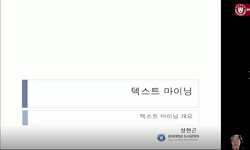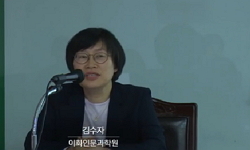Educational policy documents are public data that reveal the discourses that society creates about education in the field of policy practice. This study analyzed educational policy documents to uncover how education system figurates children with spec...
http://chineseinput.net/에서 pinyin(병음)방식으로 중국어를 변환할 수 있습니다.
변환된 중국어를 복사하여 사용하시면 됩니다.
- 中文 을 입력하시려면 zhongwen을 입력하시고 space를누르시면됩니다.
- 北京 을 입력하시려면 beijing을 입력하시고 space를 누르시면 됩니다.

교육정책 문서에 나타난 특수유아에 대한 담론: 텍스트 마이닝 분석을 중심으로 = Discourse on Young Children with Special Needs in Educational Policy Documents: Through Text Mining Analysis
한글로보기부가정보
다국어 초록 (Multilingual Abstract)
This study explored perspectives on children with special needs, discovered the discourses that our education creates, and discussed new ways of refiguration children with special needs.
Educational policy documents are public data that reveal the discourses that society creates about education in the field of policy practice. This study analyzed educational policy documents to uncover how education system figurates children with special needs. For this purpose, 164 long-term plans and annual plan documents in the fields of general education, special education, and early childhood education published by the Ministry of Education and provincial education offices over the past three years were selected for analysis. The text mining analysis included frequency of occurrence, co-occurrence, TF-IDF, and topic modeling, and the discourse was derived by repeatedly reading the original texts. The results showed that, firstly, the words ‘support’, ‘children with special needs’, ‘preschool’, ‘operation’, and ‘special education’ were highly frequent. Second, co-occurring words were combinations of words related to early detection and diagnosis, admission system, information sharing, management and support of the education system, development, the basis of inclusive education, and educational placement. Third, in the educational policy documents, children with special needs are figurated as ‘children needing enhanced support for entrance,’ ‘children struggling to access equal educational opportunities,’ ‘children receiving free education,’ ‘children educated based on assessed development and disabilities,’ and ‘children driving the infrastructure for inclusion and cooperation’.
This study explored perspectives on children with special needs, discovered the discourses that our education creates, and discussed new ways of refiguration children with special needs.
동일학술지(권/호) 다른 논문
-
발달지체 영아를 위한 언어 및 의사소통 조기개입 관련 국외 문헌 연구
- 한국유아특수교육학회
- 윤신명
- 2024
- KCI등재
-
4차 산업혁명 시대에 요구되는 교사 역량에 대한 예비유아특수교사의 중요도와 준비도 인식분석 결과
- 한국유아특수교육학회
- 오정숙
- 2024
- KCI등재
-
통합 환경에서 모델링과 최소-최대 촉진이 장애 유아의 보드게임 놀이 기술과 사회적 놀이 참여 행동에 미치는 효과
- 한국유아특수교육학회
- 장수연
- 2024
- KCI등재
-
유치원 일과 전반에 삽입된 학급 차원의 우정활동이 일반 유아의 장애 유아 수용도와 장애 유아의 또래 상호작용에 미치는 영향
- 한국유아특수교육학회
- 임상은
- 2024
- KCI등재




 KISS
KISS






